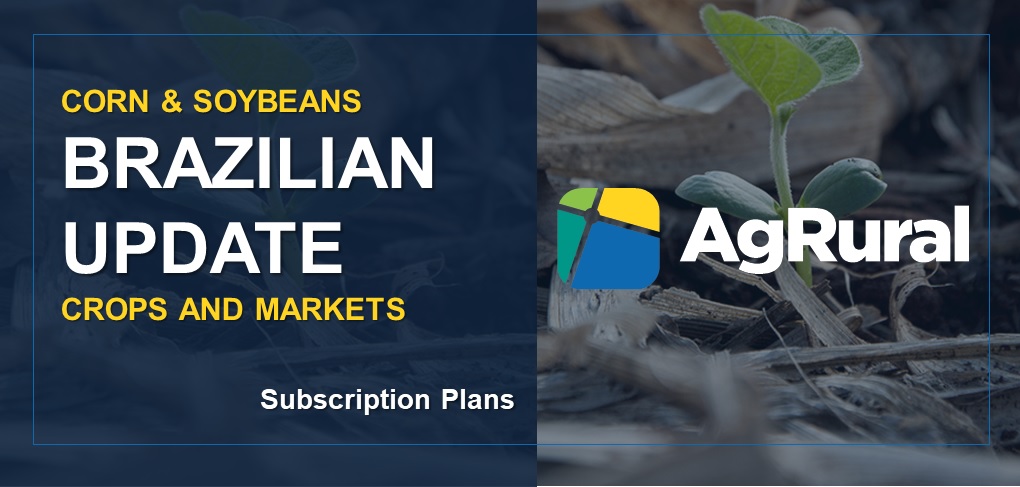Commodities 2023: Record Brazilian soybean harvest points to oversupplied market in MY 2022-23
14 de dezembro 2022 | Na Mídia
Basis prices plunge since mid-year on forecast of record harvest in Brazil
Analysts see the increase in supply outpacing demand in 2023
Brazil is on track for a record high soybean harvest in the marketing year 2022-23 (January-December 2023) going by the forecasts of commodity consultancies and government-owned institutions, likely signaling a looming oversupply that will linger until at least mid-2023.
The average of estimates by the various organizations has the world’s top soy supplier producing a record 152 million mt of soybeans in MY 2022-23, up 20% year on year.
S&P Global Commodity Insights projects the Brazilian MY 2022-23 soybean crop at 150 million mt.
Soybean basis prices have been trending lower since mid-2022, when analysts and consultancies started projecting the all-time high harvest.
Platts, part of S&P Global, assessed SOYBEX FOB Santos for January shipments at $598.49/mt Dec. 9, down $96/mt since June 9, while SOYBEX FOB New Orleans was assessed at $604.71/mt, down $95/mt since June 9.
As the weeks go by and the prospect of a record oilseed harvest in Brazil becomes firmer, prices are likely to drop further, commodity analysts said.
Substantial back-to-back supplies from the world’s top two soybean producers are a recipe for a bearish 2023, they said. The US soybean new crop has been estimated at a decent level of 118 million mt and if Brazil’s record harvest projections are factored in, oversupply seems likely.
The US Department of Agriculture has estimated the MY 2022-23 US soybean harvest at 118.3 million mt, close to its 5-year average of 118.4 million mt.
Brazil and the US together account for 70% of global soybean production.
Record acreage
Going by the estimates, Brazil’s soybeans area has expanded for a consecutive 16th year, which has significantly boosted its production capacity.
Brazil’s national agricultural agency Conab sees the acreage in MY 2022-23 at 43.2 million hectares (107 million acres), up 4.2% year on year, while others are predicting an even bigger area.
Farmers are projected to plant 43.79 million hectares with soybeans this season, an increase of 762,000 hectares from the July forecast and up 1.98 million hectares year on year, according to agribusiness consultancy Datagro.
This acreage increase is seen in the key growing regions of the north, northeast and center-west rather than displacing other crops, analysts said.
Demand challenge
The euphoria over a forecast record Brazilian soybean harvest in MY 2022-23 is likely to be short-lived, some analysts said.
Brazil typically consumes 45 million-50 million mt/year of soybeans domestically and exports almost all the rest.
“I am not sure the world needs a 100 million mt of beans from Brazil in MY 2022-23,” said Kory Melby, consultant with Brazilian Ag Consulting Services.
Pete Meyer, head of grain, oilseed, and advanced feedstock analytics at S&P Global Commodity Insights, agreed. It is unlikely the market will digest a supply surge of 150 million mt early next year, Meyer said.
However, if the Argentinian crop were to fail, then Brazilian farmers could pitch in and export more, he added.
Mirroring the sentiment, commodity consultancy AgRural lists a few factors that will determine Brazil’s soybeans trade in MY 2022-23.
“That [selling 150 million mt of soybeans] will be a challenge and will depend on a few factors that are not completely defined yet,” said Daniele Siqueira, grains market analyst at AgRural. “Right now, I don’t see Brazilian soy exports going beyond 90 million-92 million mt in MY 2022-23,” she added.
“We’ll have to see China’s demand improving more than what official sources are forecasting,” Siqueira said, adding that a failure of the US crop in MY 2023-24 could help Brazil export a higher vulume.
The fate of Brazil’s impending record soybean harvest depends on multiple variables, especially China’s demand.
China is the world’s largest soybeans consumer, accounting for 60% of global trade, and is forecast to import 98 million mt in MY 2022-23, according to USDA data. It has been Brazil’s top export destination for soybeans in recent years.
However, not all analysts see 2023 as a lackluster year for Brazilian soybean trades.
Raphael Mandarino, general director at AgResource Brasil, said there was a market for Brazil’s 150+ million mt soy crop, both domestically and abroad.
“We do think Brazil can export an extra 15 million-18 million mt in MY 2022-23,” Mandarino said, adding domestic crushing capacity will increase simultaneously with a higher biodiesel mandate next year.
AgRural has a similar view of Brazil’s domestic consumption of the yellow beans.
The domestic market is likely to see higher consumption on the back of an imminent increase in a biodiesel blending mandate to B15 from B10 from April, Siqueira said.
However, the increase in crush capacity will result in the need to export more soybean meal, which will be an additional challenge for Brazil, she added.










